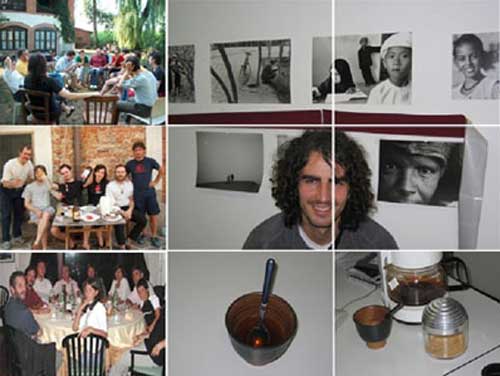GAS, SOLIDARITY PURSHASING GROUP

A group of people that decides to use the concept of solidarity as a guideline for the daily economical behaviour.
Key Innovation
To organise groups of consumers to purchase food directly from independent producers (shorter chain).
Problematic background and context
Consumers are not satisfied by the products offered by the large manufacturers. They would like to be more active in terms of knowledge of the background of the product instead of being a passive consumer. A group of people propose a new way to oppose this kind of economical behaviour as they would like to have an alternative solution, contributing their ideas and giving much attention to human rights and also maintaining the survival of local producers.
Solution description
Gruppo Acquisito Solidale (GAS) consist of a group of people with the same ideology that arrive with the decision that they, together, would purchase a large quantity of some essential basic products such as pasta, olive oil, etc for themselves, from small local producers based on trust relationship. In this way, they gain a feeling of satisfaction knowing where the products come from, and not exploiting human rights in the process. There would be no cost of packaging or publication of the products , thus reducing the overall expenses and they communicate constantly amongst each member of the group, thus strengthening the social fabric.
Timeframe
The group GAS was initiated in 1994 and up to knows is still developing.
Development phase
Diffusion:
GAS is a low diffusion due to the fact that they develop locally, most of which consist of friends sharing the same vision and the will of obtaining what is beneficial for both them and the producers. They want to make sure that each new group has the same values as the initial one, and considering that people have different points of view or values, in this case, the diffusion of GAS doesn’t spread rapidly, although there are a lot of interest towards it.
Maturity:
GAS isn’t a formal association, the members do their part voluntarily without no specific set of rules, but they do their roles with responsibility and with respect to others. Even inside the groups, all the process and development are discussed in a relaxed atmosphere considering the opinion of each and every member. GAS is still in its initial stage because there is no strict structural organization architecture, and they value the time spent with friends where all the process are done in a friendly manner.
Revenue/costs model
GAS is a non profit informal organization; it runs on a family-friend basis, where all the cost are shared evenly and accordingly. – Members make their order through email/phone and pay in cash – At times, delivery has to be done by other actors, and of course the cost are divided equally among members.
Social evaluation
Being together with friends, socially interact in a relaxed atmosphere, discussing about which product to purchase that ‘qualify‘ the group’s motives in avoiding exploitation of human rights. This generates a feeling of satisfaction among group members and also because they know the quality and origin of the products. The fact that these groups always have a limited number of members, makes the connection and communication easier.
Environmental evaluation
The advantage is that there is less packaging waste, and considering that the products are bought in large quantity, means that there is less pollution in terms of delivery. Some of the products are organic so it benefits the ecosystem without the usage of fertilizer and pesticides.
Economical evaluation
Although not the main intention, but it improves the family economy, because the overall expenses become less and at the same time, it maintains the survival of small local producers.
Authors
Annjosephine Hartojo, Luigi Boiocchi / Politecnico di Milano / Italy